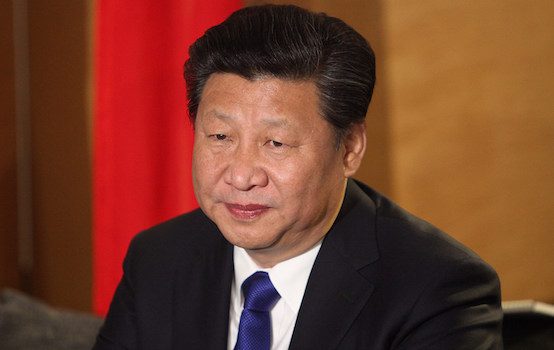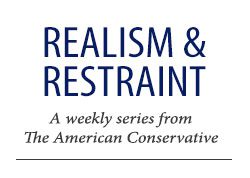Did Trump Really Hand Asia to China During the Kim Summit?

Bloomberg’s choice of headline on the day of the historic Singapore summit was particularly revealing and left nothing to interpretation: “China Gets Everything It Wanted From Trump’s Meeting With Kim.”
The financial news network went on to proclaim, “The biggest winner from President Donald Trump’s summit with North Korean leader Kim Jong Un—aside from Kim himself—was unquestionably the government of President Xi Jinping.”
 Meanwhile Hong Kong’s South China Morning Post picked up the same theme: “Trump Hands Xi Jinping a Win in Singapore—And May Have Handed All of Asia to China,” it blared in one headline.
Meanwhile Hong Kong’s South China Morning Post picked up the same theme: “Trump Hands Xi Jinping a Win in Singapore—And May Have Handed All of Asia to China,” it blared in one headline.
Did China really get that much? There was a lot for Mr. Xi to like from the historic get-together, but Beijing’s gains are gifts from President Donald J. Trump, and Trump, should he so choose, can take them back quickly. That means China’s benefits, as Bloomberg and others see them, are not China’s to control. More importantly, Trump has started a process that could end up undermining—in fundamental ways—long-term Chinese interests.
At first glance, China has to be pleased by what transpired last Tuesday. President Trump, at his post-summit press conference, announced the suspension of American participation in large-scale military exercises with South Korea.
The move was in effect acceptance of the Chinese “freeze-for-freeze” proposal, and it was all the more injurious to America’s position in the region because Trump publicized his decision without consulting South Korea or Japan, American treaty partners. Not surprisingly, Trump’s move unnerved Seoul and an already jittery Tokyo.
The president even adopted North Korea’s language for the defensive drills: “war games.” Pyongyang calls them “provocative,” as did, incredibly, Trump.
Trump even raised the possibility of removing all American forces from the peninsula, a move that would eventually result in ending our alliance with South Korea. “We have, right now, 32,000 soldiers in South Korea, and I’d like to be able to bring them back home,” Trump said at the June 12 presser, replaying a theme he’d raised in March 2016 as he campaigned for office.
Observers were stunned. Trump, by acting impulsively, had weakened the bonds tying together a decades-old alliances. Beijing’s long-term goal is to remove America from Asia so that it can dominate the region. In that, the Chinese seemed to have found a willing partner in Trump.
Yet despite the president’s desire to retrench, the removal of U.S. troops from the peninsula is off the agenda, something Trump made clear when he said at the press conference that an eventual withdrawal is “not part of the equation right now.”
Moreover, Seoul was adamant on the matter. “Let me be clear,” said one “high-level South Korean official” to Reuters. “There has been no discussions and no change in position on the matter of the issue of U.S. troops in South Korea.”
And the suspension of the joint exercises, which puts August’s Ulchi Freedom Guardian drill on hold, is only that, a suspension. American officials have made it clear that regular training will continue. Secretary of State Mike Pompeo on Wednesday said he had witnessed Trump telling Kim that large-scale exercises will resume if North Korea does not negotiate “denuclearization” in good faith.
In other words, China’s “win,” as some characterize it, can evaporate and Beijing still has little or no control over what happens. China faces almost insurmountable obstacles in removing the U.S. from its eastern periphery if host countries do not want Washington to go.
American policymakers, for about a century and half, have drawn their western defense perimeter off the coast of Asia instead of off the coast of Hawaii or California. A line of active duty military personnel—those in South Korea and 38,800 in Japan—stands between a continental Asian aggressor and the American homeland, and in a period of escalating Chinese aggression and provocation, Trump on his own is unlikely to weaken Washington’s defense.
Moreover, Trump may have begun a process that leads, if not to North Korea’s disarmament, then something perhaps to something even more important: Pyongyang switching sides, deserting Beijing for Washington.
North Korea could use a new friend. For millennia, the border between the Chinese and Koreans has moved in both directions, one reason so many ethnic Koreans now live inside the People’s Republic of China. And Beijing does not necessarily believe the current boundary—defined by two rivers and an active volcano—will last forever.
Chinese scholars have been arguing for years that the ancient Goguryeo state, which the Koreans believe to be one of their Three Kingdoms, was actually Chinese. Many in both Koreas, therefore, worry about China’s irredentism and think Beijing may use its new scholarship to support a territorial claim over what is now the northern part of the peninsula.
The U.S., therefore, is just what Kim Jong-un needs: a big-power sponsor with no territorial ambitions on the Democratic People’s Republic of Korea. Trump indicated he would be willing to accommodate Kim when he said on the first of the month that “the relationships are building, and that’s a very positive thing.”
For China, an enduring relationship between Washington and Pyongyang, whatever form it might take, would be a debacle.
“I think,” Charles Armstrong of Columbia University told the South China Morning Post, “China may be concerned about losing their leverage over North Korea and fears that North Korea and the U.S. may enter into an anti-Chinese alignment.”
That alignment would divest Beijing of the ability to play the North Korea card against Washington and allow American policymakers, as Steven Mosher proposes, to finally focus on what really matters. “Once we neutralize North Korea, it will be time to turn our full attention to China,” writes Mosher, author of the Bully of Asia: Why China’s Dream Is the New Threat to World Order.
Moreover, a U.S.-North Korea alignment would undermine crucial narratives the Chinese are now vigorously propagating. How could anyone think China is history’s next great power, as it increasingly claims, when it cannot even hold onto a small neighbor, its only formal military ally? Strong ties between the Kimist state and the U.S. would in turn discredit the Chinese-generated notion that the Americans will eventually leave Asia and in any event are a spent geopolitical force.
Trump seems to be spending as much effort cultivating the North Korean dictator as disarming him, as his invitation to Kim to visit Washington suggests. Relationship-building is an indication that the 45th president is thinking of a future where China is sidelined in its own backyard.
Yet whether sidelining China is Trump’s intention or not, Beijing policymakers may not be as happy about the Singapore summit as headline writers think. In all probability, the Chinese are looking at last week’s developments with caution.
Or at least they should. They may remember Richard Nixon once tried to woo them to desert the Soviet Union. In fact, the Chinese may recall that the American leader was quite successful in that regard.
Gordon G. Chang is the author of Nuclear Showdown: North Korea Takes On the World. Follow him on Twitter @GordonGChang.
Comments